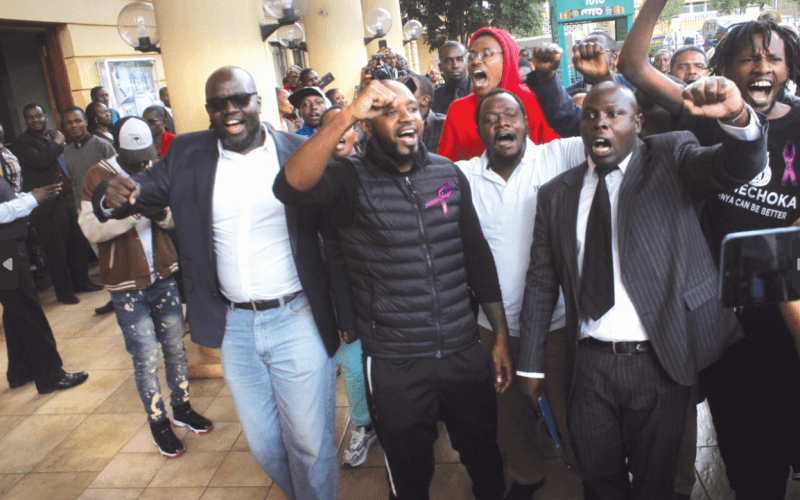Activists set free over low evidence threshold

Activist Boniface Mwangi and his four co-accused persons were yesterday released after the court failed to approve the charges, terming them defective and lacking evidentiary threshold.
The Office of the Director of Public Prosecutions (ODPP) yesterday said the two charges of creating disturbance and taking part in unlawful assembly neither disclosed how they created disturbance nor the offence they intended to commit, respectively.
Assistant Director of Public Prosecutions (DPP) Dorcas Rugut in a letter to the Inspector General of Police said upon independent and thorough review of the file, and duly guided by the ODPP Guidelines on Decision to Charge 2019, they could not approve the charges.
“The DPP directs that the evidence presented has not met the evidentiary threshold to warrant approval of the proposed charges.”
Police had preferred charges of creating disturbance contrary to Section 95(1) (b) of the Penal Code and taking part in an unlawful assembly contrary to section 78(1) as read with section 79 of the Penal Code.
According to the first charge, any person who brawls or in any other manner creates a disturbance in such a manner as is likely to cause a breach of the peace, is guilty of a misdemeanor and is liable to imprisonment for six months.
The ODPP however said for the offence to be adequately proven, the prosecution must show that there was a brawl caused by the accused persons or that the accused created disturbance in such a manner as is likely to cause a breach of the peace.
“A brawl is defined as a rough or noisy quarrel or fight. It would thus behove that the evidence presented would need to demonstrate that the suspects in their manner of acting either brawled or fought or created disturbance,” the assistant DPP Rugut said.
She said the evidence by the police only demonstrates that the suspects were carrying placards, but does not demonstrate in their mannerism how they created a breach of peace.
In the second count where they were charged jointly with others not before court took part in an unlawful assembly, Rugut said: “It is worth noting that from the particulars enunciated in the charge sheet, it has not been articulated the charge sheet does not state which offence the suspects intended to commit.”






